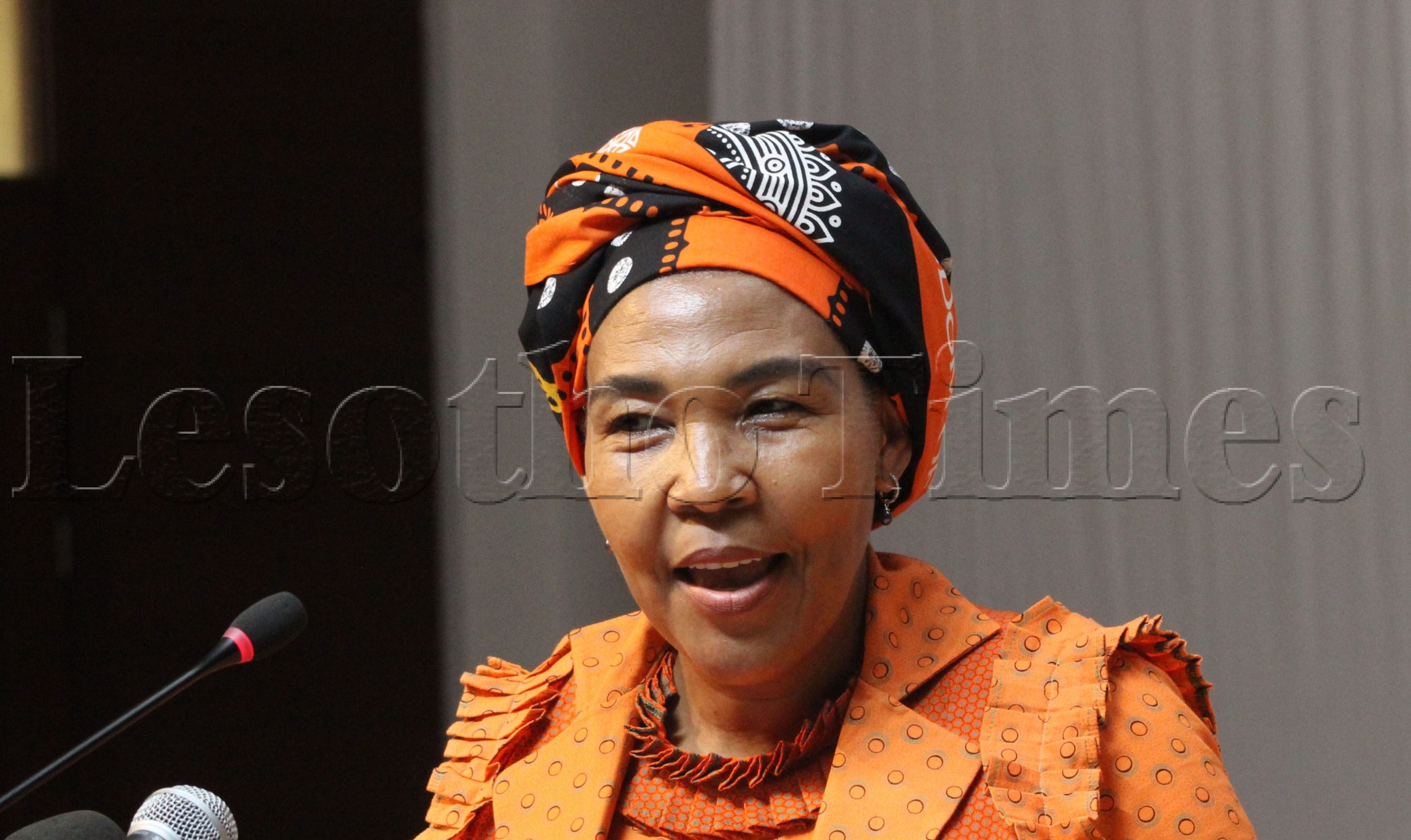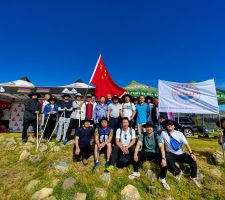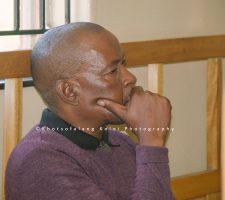
Limpho Sello
ALL governing structures must collaborate in fighting early childhood and forced marriages, First Lady Masekoalane Majoro has said.
Ms Majoro said this at Linakeng in Butha-Buthe on Monday while donating 300 dignity kits to vulnerable girls and young women. Funded by the United Nations Population Fund (UNFPA), the kits contain hygiene and sanitary items, as well as other items tailored towards the needs of women and girls of reproductive age.
The kits are meant to help girls and young women improve cleanliness with items such as soap, sanitary materials, toothbrushes and toothpaste to maintain their dignity during humanitarian crises like the prevailing Covid-19 pandemic.
Ms Majoro said the scourge of early child and forced marriages requires firm resolutions from leaders.
“From a medical point of view, young girls are not yet physically mature, so early sexual activity brings many threats of damage to their developing bodies,” Ms Majoro said.
“It has also been found that with their pelvises still narrow and their bodies immature, adolescent wives are at a higher risk of losing their lives during pregnancy or childbirth.”
Research has also shown that younger wives are scared of negotiating the use of contraceptives with their husbands thereby exposing them to the risk of contracting sexually transmitted infections (STIs) and HIV.
“This is confirmed by Washington-based social demographer for International Centre for Research on Women’s Jeffrey Edmeades who says that child marriage is a silent health emergency in the sense that it is often overlooked as a root cause of maternal mortality and morbidity.”
Ms Majoro said her office is ready to start a campaign against child marriage and with the commitment of the government, community leaders, religious leaders, civil society, private sector and all relevant parties; the practice stopped and Basotho girls will face an entirely different future.
She expressed gratitude to the UNFPA for partnering with her office in protecting the rights of young women and girls.
“When people are able to keep themselves clean, they are afforded their dignity. I am therefore grateful on behalf of those receiving the dignity kits today,” Ms Majoro said.
For his part, UNFPA country representative Marc Derveeuw said the distribution of dignity kits to vulnerable women and girls was part of the cross-sectoral emergency response towards protecting Lesotho’s drought-affected population.
Dr Derveeuw said the consequences of the drought have been exacerbated by the Covid-19 pandemic, which led to loss of income opportunities for most families due to movement restrictions.
“Dignity kits serve a broader purpose and so contain a wider range of items. They help women and girls maintain their dignity during humanitarian crises. Preserving dignity is essential to maintaining self-esteem and confidence, which is important to cope in stressful and potentially overwhelming situations.
“Supporting women’s self-esteem and confidence also assists them in providing care and protection to their children,” Dr Derveeuw said.
The UNFPA is cognisant of the challenges facing women and young girls in Lesotho during the lockdown.
“Gender-Based Violence (GBV) incidences were heightened as women and girls were confined in the same space as their violators with nowhere to go. The incidences of reported femicide increased at an alarming rate, child marriages were inevitable as children stopped going to school and teenage pregnancy is reported have skyrocketed.
“The UNFPA is grateful for the support of the First Lady in the fight against GBV. The struggle will need concerted efforts from all of us and we are glad you are embarking on this journey with us,” Dr Derveeuw said.
Before going to Butha-Buthe, the UNFPA had already distributed 3000 dignity kits in five districts namely Mokhotlong, Maseru, Mafeteng, Mohale’s Hoek and Quthing. Another 2200 will soon be distributed to Thaba-Tseka, Berea, Leribe and Qacha’s Nek.












